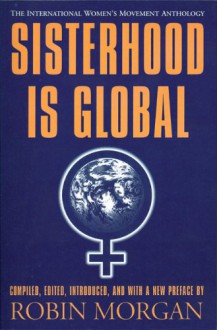Sisterhood Is Global has been revered as the essential feminist text on the international women's movement since its first appearance, when it was hailed as "a historic publishing event." The anthology features original essays Morgan commissioned from a deliberately eclectic mix of women both...
show more
Sisterhood Is Global has been revered as the essential feminist text on the international women's movement since its first appearance, when it was hailed as "a historic publishing event." The anthology features original essays Morgan commissioned from a deliberately eclectic mix of women both famous and less known-grass-roots activisits, politicians, scholars, querillas, novelists, social scientists, and journalists-representing 70 countries, from every region and political system, with particular emphasis on the Global South. These truth-telling, impassioned essays celebrate the diversity as well as the similarity of women's experience; they also reveal shared female rage, vision, and pragmatic strategies for worldwide feminist solidarity and political transformation. Each country's essay is preceded by a statistical preface containing carefully researched and referenced data on the status of women, including: population, birth rate, infant mortality, life expectancy, contraception and abortion (both laws and practices); percentage of women in education, government, and labor force; laws and practices regarding women's religious, secular, educational, and employment rights (including marriage, divorce, motherhood, custody, sexual preference, welfare, prostitution, rape, battery, sexual harrasment, and traditional/cultural practices); "herstory"; "mythography"; and more. Despite dramatic geopolitical changes since the book's first publication, much of the data on women remains virtually the same. The first such international collection, Sisterhood Is Global became an instant classic and remains unequalled in its breadth and comprehensiveness. The book covers Afghanistan to Zimbabwe (as well as the status of women in the United Nations itself), and includes moving essays from such distinguished writers as Marjorie Agosin (Chile), Ama Ata Aidoo (Ghana), Shulamit Aloni (Israel), Peggy Antrobus (Caribbean), Simone de Beauvoir (France), Lidia Falcon (Spain), Hema Goonatilake (Sri Lanka), Fatima Mernessi (Morocco), Nawal El Saadawi (Egypt), Ana Titkow (Poland), Marilyn Waring (New Zealand), and Xiao Lu (China).
show less

